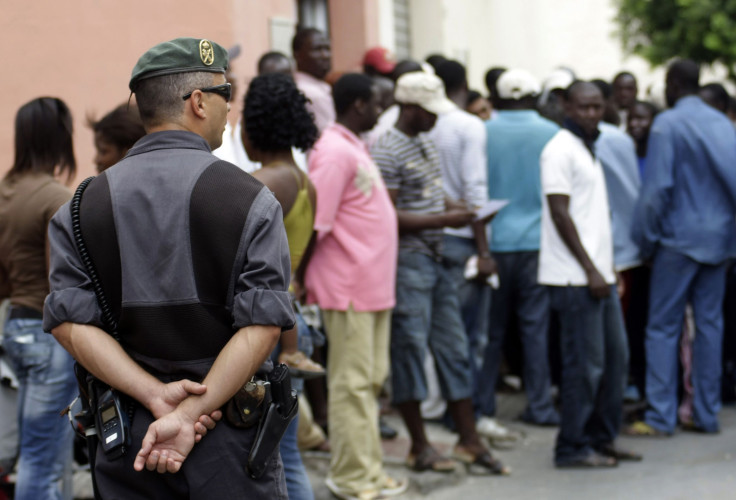Undocumented African Immigrant In Spain Dies After Hospital Refuses Treatment

Spain’s treatment of its undocumented immigrant community has come under fire again following the death of a Senegalese man who was refused treatment at a hospital on the island of Majorca.
Alpha Pam, 28, who had lived on Majorca for eight years, perished from tuberculosis in late April after the Comarca de Inca Hospital repeatedly refused to treat him because he did not have a Spanish health card. Tuberculosis is a deadly, but easily treatable, disease.
On Wednesday, the Balearic Islands’ health minister Martí Sansaloni fired the director of the hospital, Fernando Navarro, for his negligence. Local authorities may also launch a probe on medical staff at the clinic.
Nonetheless, a Spanish NGO called Médicos del Mundo (Doctors of the World) and a local political party, MES per Mallorca, have condemned the circumstances surrounding Pam’s death and may take legal action against Sansaloni for failing to deliver medical assistance to the Senegalese man.
In a joint statement, the Doctors of the World and the Spanish Society of Community and Family Medicine said: "It is not malpractice by health professionals that is leading to a lack of medical attention for thousands of people, resulting even in death, but the imposition of legislation that was approved without measuring the consequences it would have on people's lives and public health.”
The local newspaper reported that Pam is believed to be the first person in Spain to die in connection with a new law introduced last summer that prevents undocumented immigrants from obtaining health cards and says they can receive only pediatric, pregnancy and emergency care.
That law, widely condemned by rights activists and immigrant groups, was enacted as an austerity-driven cost-cutting measure to help Spain cope with its crippling economic crisis.
The Madrid government denied that racism played any role in the Majorca tragedy. "In no way, and this is the important thing, was there any discrimination related to the origin or condition of the person being cared for," Health Minister Ana Mato told Parliament. "Unfortunately, mistakes are sometimes made, but that has nothing to do with the health service. No one who needed it has been left without care.”
Fox News Latino reported that there were more than 150,000 undocumented immigrants in Spain whose health care privileges were immediately stripped by the law imposed last year by Prime Minister Mariano Rajoy's conservative government.
"We'll die if they don't treat us; the government has to correct what it did, it can't leave us to our fate because we have no money to pay for treatment," a Gambian immigrant told the Efe news agency.
However, the total number of immigrants in Spain (including legal, undocumented and those who were given amnesty by the government) is believed to be some 6.4 million – one-seventh of the total population.
As recently as 1990, immigrants accounted for only 2 percent of the Spanish population. The Senegalese immigrants in Spain face particular challenges. According to a report in EqualTimes.org, there are at least 48,000 Senegalese living in Spain, about one-third of them in the Barcelona area. The total number could be much higher since most Senegalese are undocumented.
Between 2004 and 2009, Senegalese accounted for the second-largest African group of immigrants in Spain, behind Moroccans.
“They [Senegalese] come to improve their quality of living. Most people plan to work here and save money to then return and invest it in their homeland,” said Omar Diatta, the Secretary General of the Catalan Association for Senegalese Residents.
“But the reality they encounter is different from what they expected. They can’t make enough money to save up. How much do people pay an immigrant? So they end up staying longer.”
Consequently, most Senegalese work in the underground economy – often as street vendors – some making as little as €5 ($6.50) per day.
“They’ll take any job. Many have no education, but those who do [have education] don’t manage to get it recognized here,” Diatta added.
“They don’t hire you for your degree. You can get a job as a waiter or a construction worker and you take it because you have to. And then there are the street vendors."
© Copyright IBTimes 2024. All rights reserved.





















